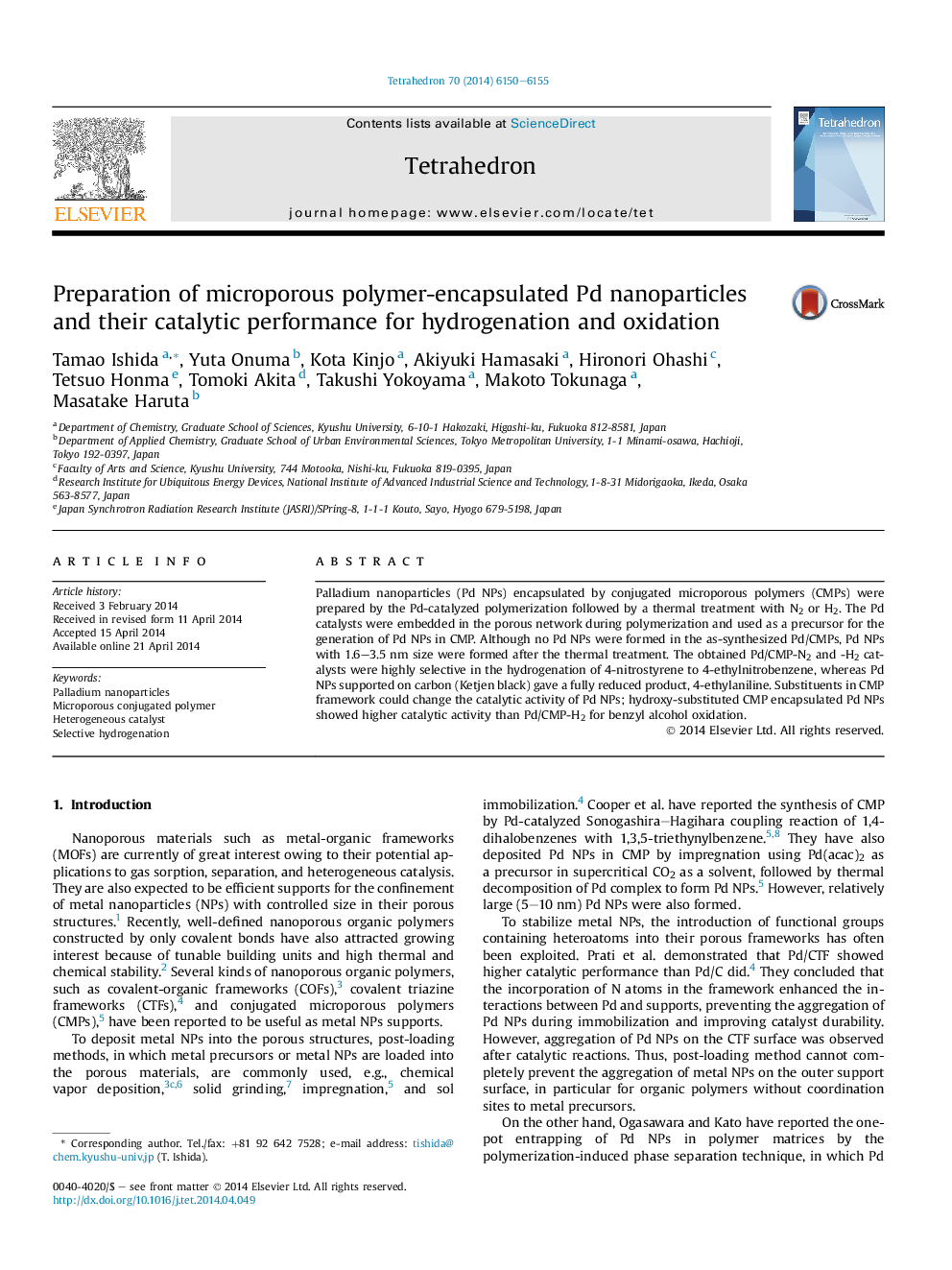| Article ID | Journal | Published Year | Pages | File Type |
|---|---|---|---|---|
| 5216145 | Tetrahedron | 2014 | 6 Pages |
Palladium nanoparticles (Pd NPs) encapsulated by conjugated microporous polymers (CMPs) were prepared by the Pd-catalyzed polymerization followed by a thermal treatment with N2 or H2. The Pd catalysts were embedded in the porous network during polymerization and used as a precursor for the generation of Pd NPs in CMP. Although no Pd NPs were formed in the as-synthesized Pd/CMPs, Pd NPs with 1.6-3.5Â nm size were formed after the thermal treatment. The obtained Pd/CMP-N2 and -H2 catalysts were highly selective in the hydrogenation of 4-nitrostyrene to 4-ethylnitrobenzene, whereas Pd NPs supported on carbon (Ketjen black) gave a fully reduced product, 4-ethylaniline. Substituents in CMP framework could change the catalytic activity of Pd NPs; hydroxy-substituted CMP encapsulated Pd NPs showed higher catalytic activity than Pd/CMP-H2 for benzyl alcohol oxidation.
Graphical abstractDownload high-res image (224KB)Download full-size image
